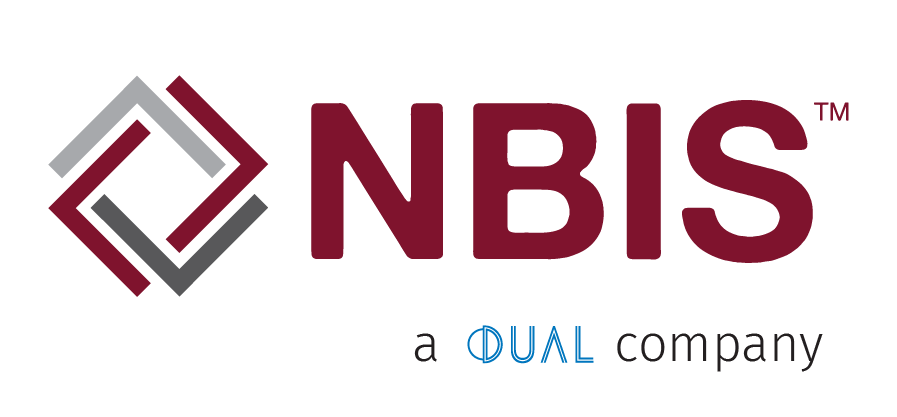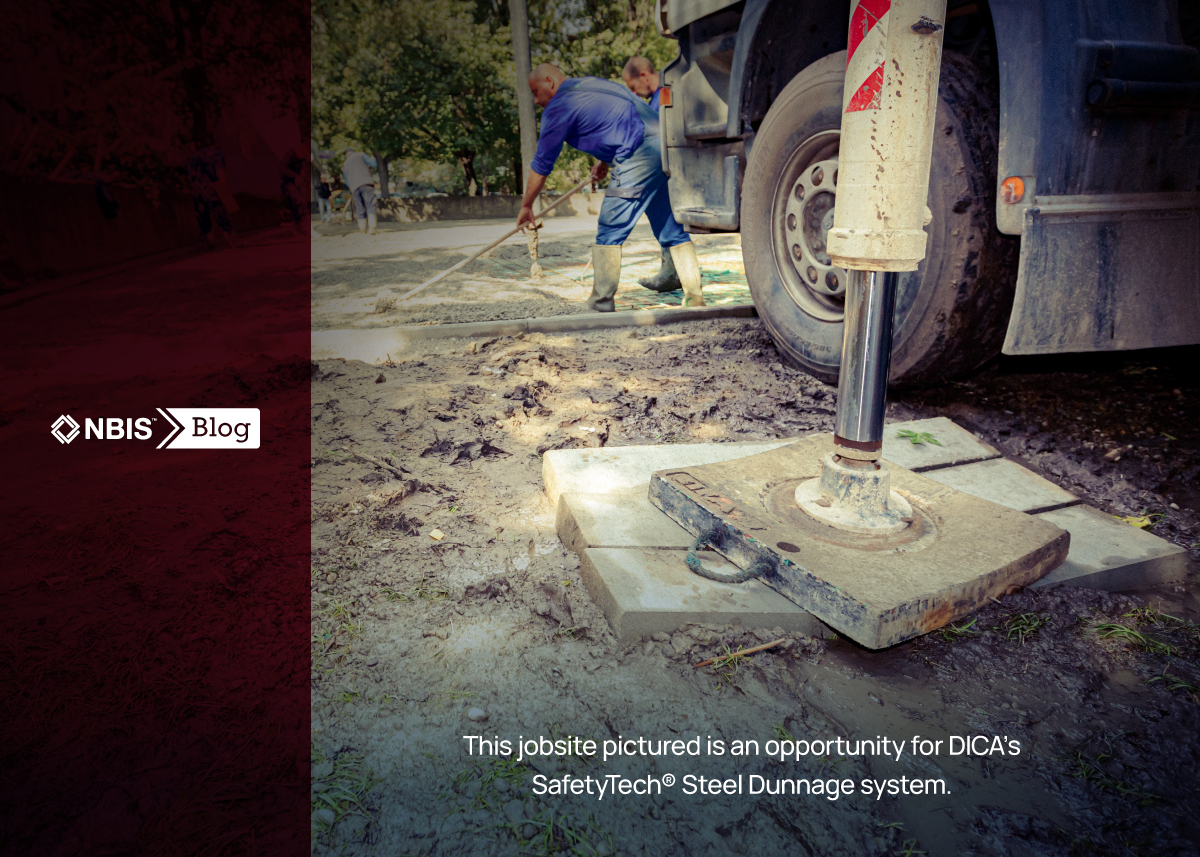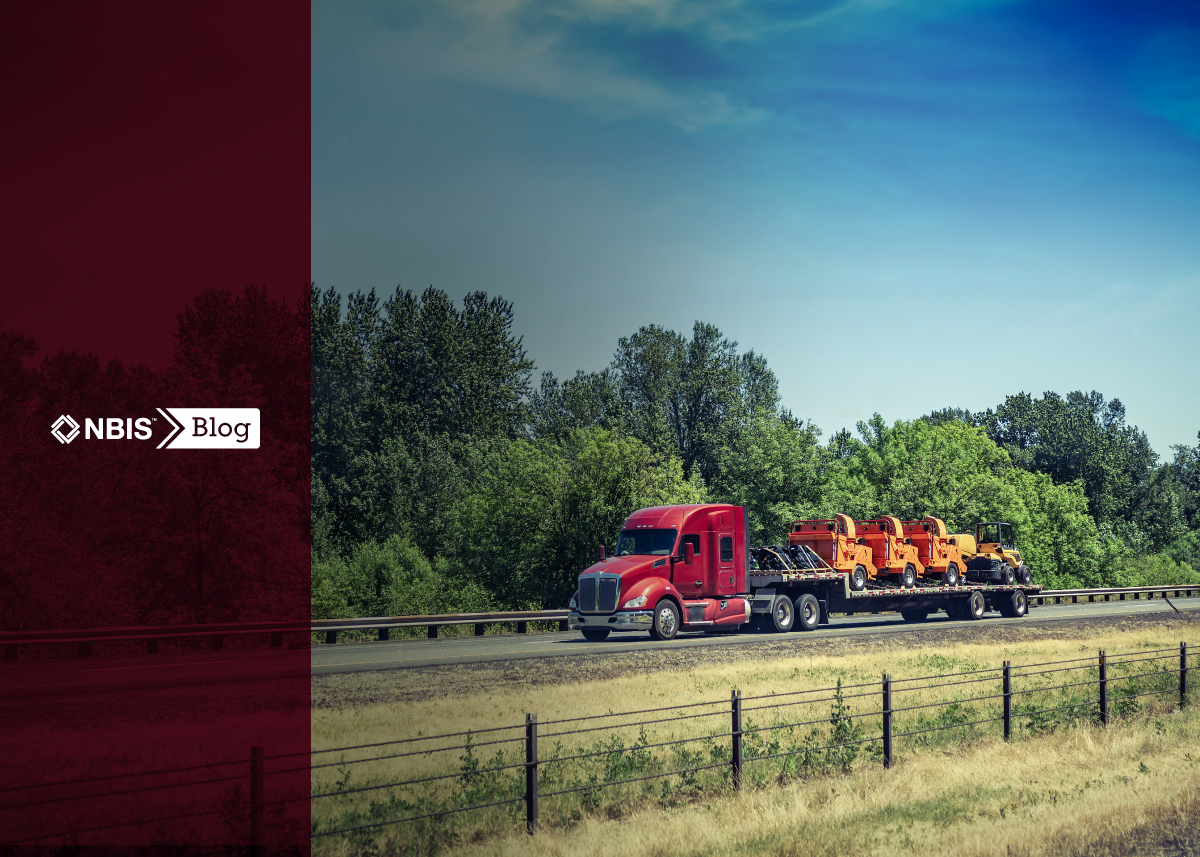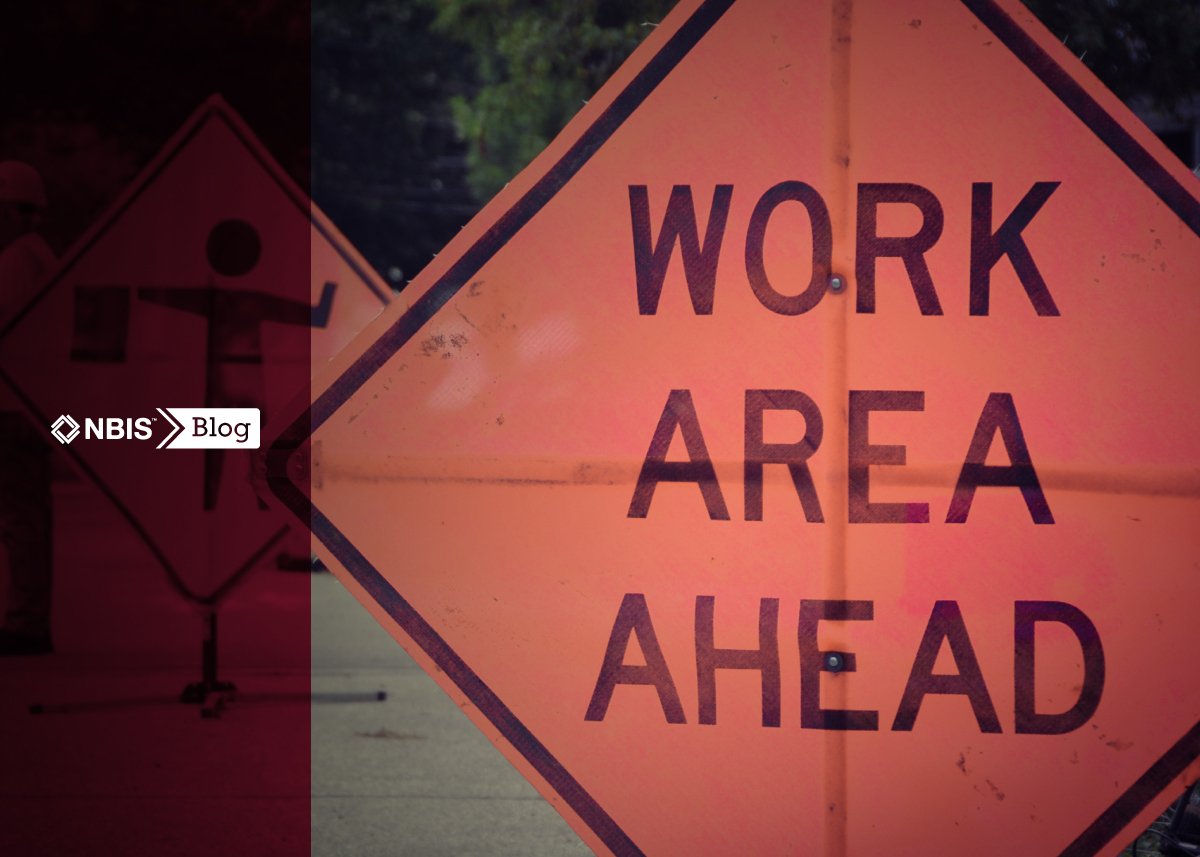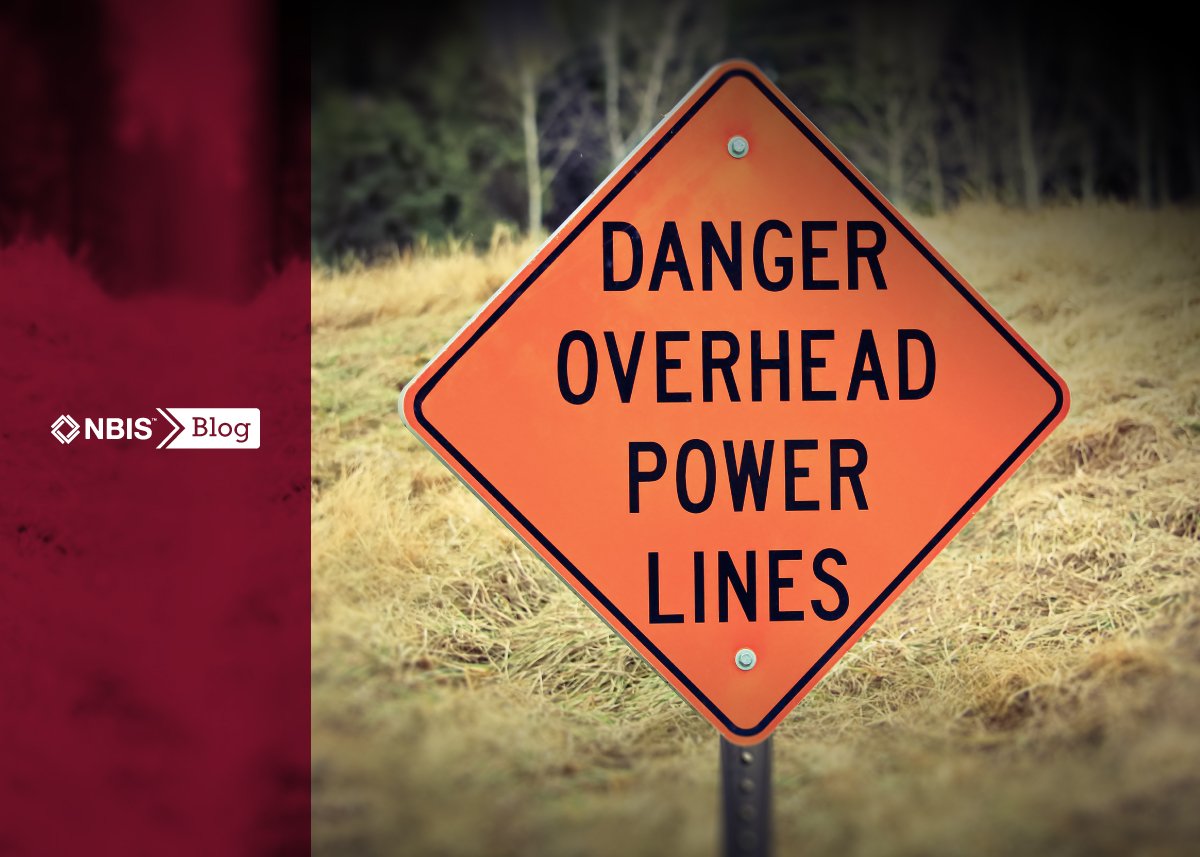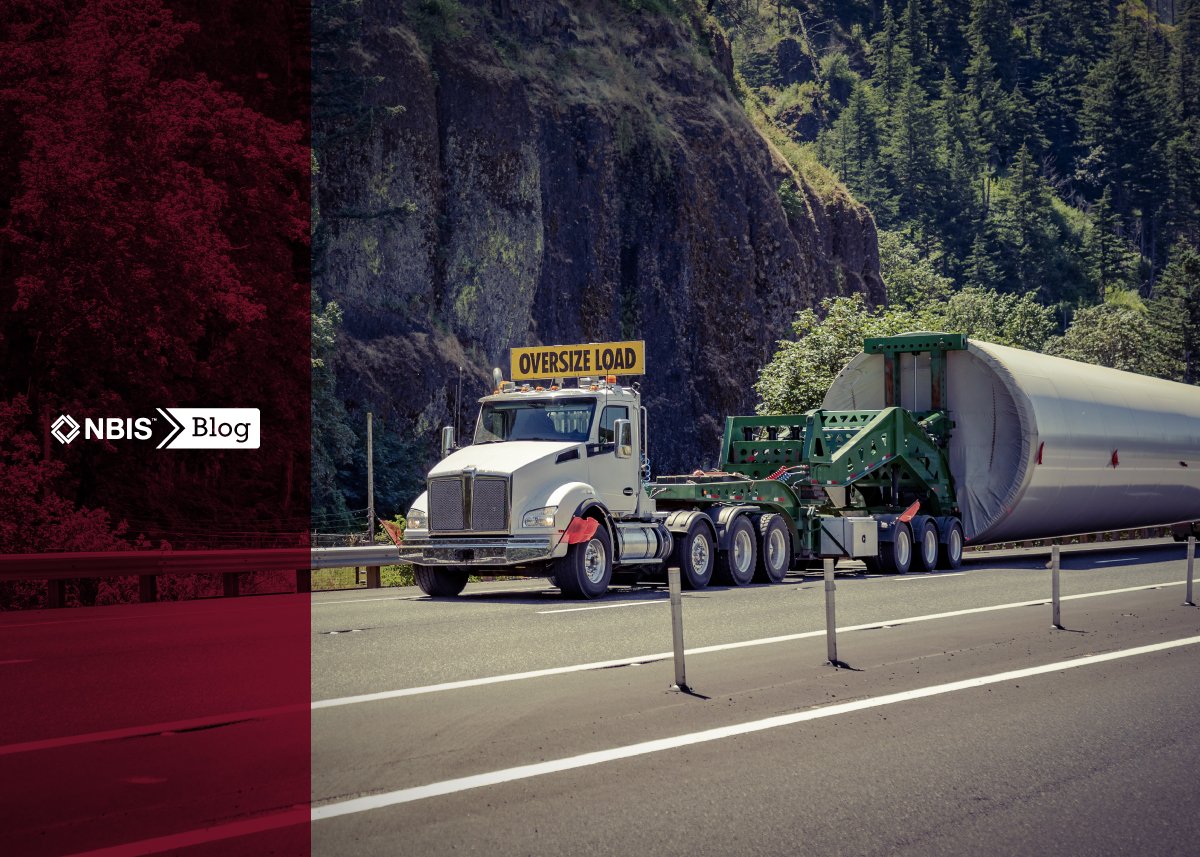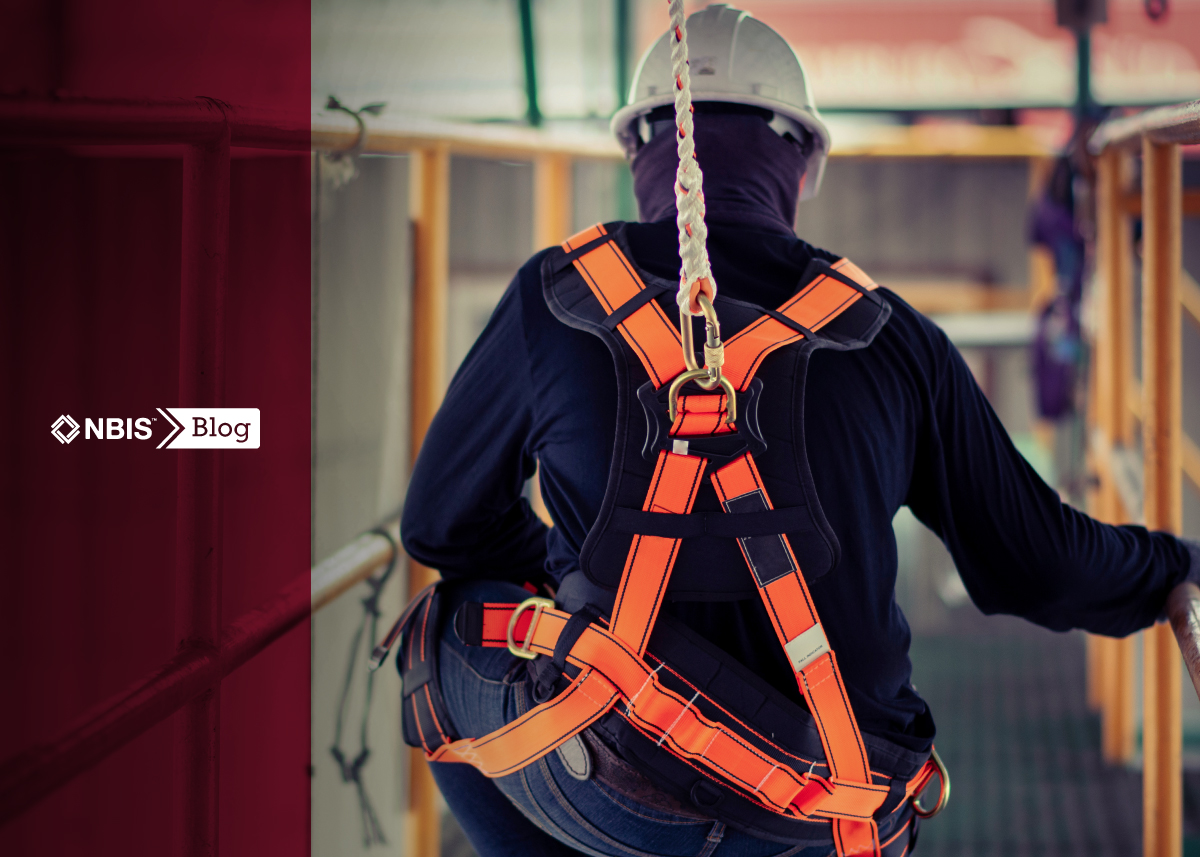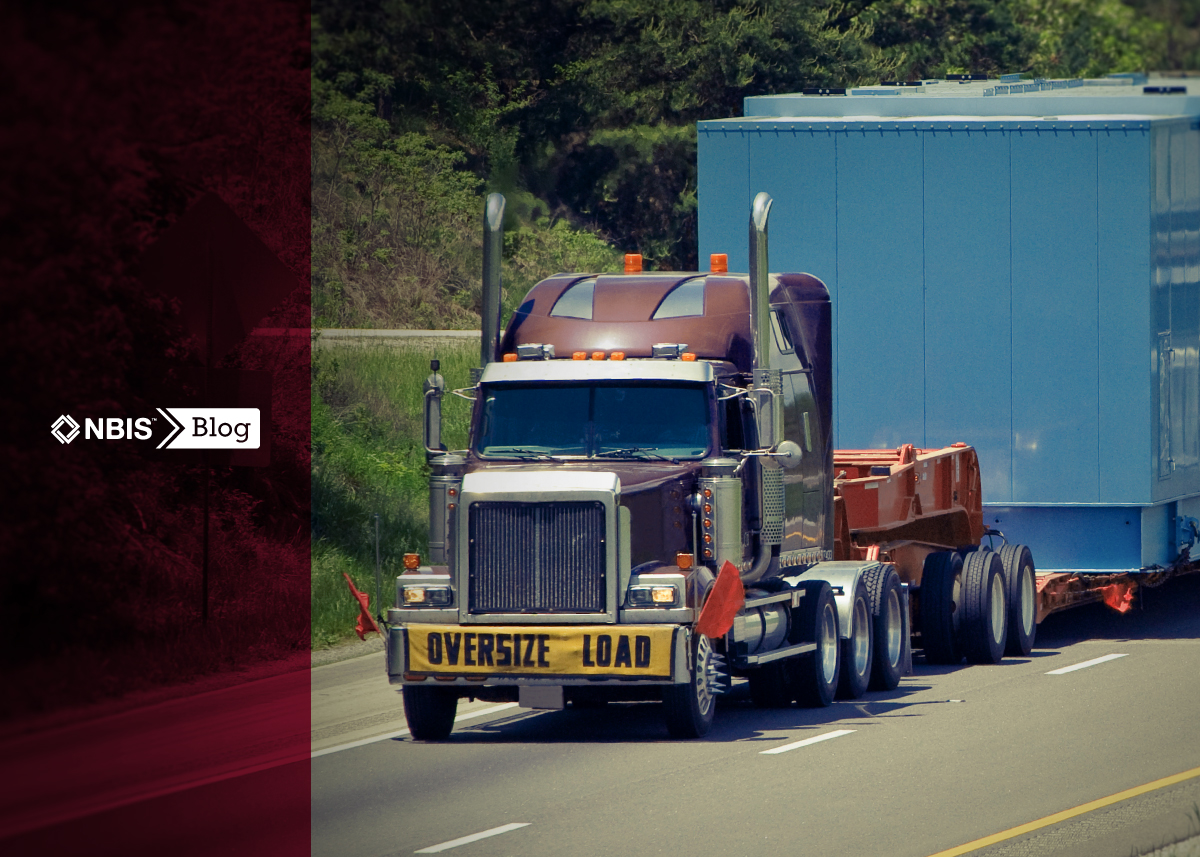By Kyle Rask
Over the last few years, there has been an increase in the number of concrete-pump tip-over incidents. In analyzing these losses, a few factors stand out. Namely, concrete pumping companies are often told by the general contractor to set up in areas where the ground is not prepared to support the pump truck. This could be from a lack of compaction resulting from grading or underground utility work, or a failure to communicate subsurface issues that could affect the pump truck’s stability.
In addition to managing your risk through your subcontract agreements, which I’ll address at the end of this article, part of the solution to these sorts of ground-stability issues is having a portable outrigger pad or dunnage system capable of supporting and spreading the load of the pump truck across the ground it’s working on.
An ongoing issue for Concrete Pump Trucks
For years, operators have struggled to carry the appropriate number and sizes of outrigger pads on their pump truck. The size and weight of these pads have made storage difficult, and the combined size and weight make them hard for one operator to set up alone, exacerbating the risk of lifting injuries.
However, DICA has now developed a portable, modular system unlike any other product currently available on the market. Instead of lifting heavy, large, awkward pads, an operator can quickly and efficiently set up the multiple-piece system with assistance, lessening chances of injuries.
“Developing SafetyTech® Steel Dunnage was done completely with the end user in mind,” says Kris Koberg, DICA CEO. “Years of collaboration have led to the development of SafetyTech Steel Dunnage, a portable, reliable and stable system that we believe checks those boxes.”
That said, where this product really excels is in its distribution of outrigger forces. DICA’s new product truly spreads the load, to the tune of 98% utilization. Compare this to other standard outrigger solutions used in the industry and the difference stands out.
“Our objective was to optimize performance, portability, storage and cost,” Koberg explains. “Each piece has a purpose and contributes to a safer setup.”
Transfer your ground-condition risk
Concrete-pumping companies and their operators should not be responsible for jobsite ground conditions. While you should certainly perform a visual site inspection to determine any possible hazards, ground conditions are often invisible to the naked eye, and they are dependent on the general contractor, whose duty it is to inform any subcontractors of subsurface issues or lack of compaction.
To help fight this issue, NBIS has developed work-order terms and conditions to address the general contractor’s responsibility to provide a safe work area capable of supporting the concrete pump in use.
To learn more about DICA’s new and innovative SafetyTech® Steel Dunnage system, or to talk to an NBIS Risk Management Specialist about your work order terms and conditions, contact Kyle Rask.
